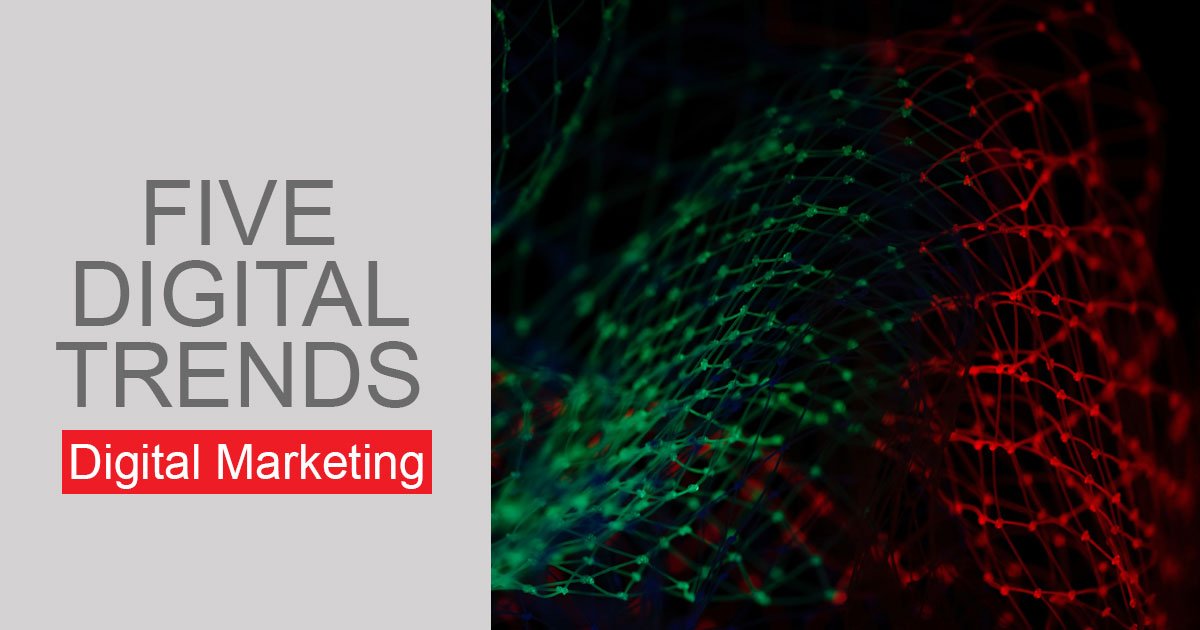
31 Oct 5 trends beyond 2020 for Digital Marketers
The New Year brings together a time to reflect, take count and plan for the year ahead. With that in mind, you would have seen a fair few #2020 trends popping up on feeds all over social media. This blog post, is no exception, but the difference, it’s coming from my viewpoint working across many industries over the years.
So, here it is, my five things that I think will impact how marketers and businesses will operate over the next 12 to 24 months.
1) Personalisation will improve customer experience
“Salesforce indicates that 80% of customers will look towards brand experience as key differentiators alongside the product itself. “
Common sense dictates that if you can make your product or service tailored to your audience, which creates a bespoke type of experience, you will have a happy customer. That inturn will reduce churn, foster stronger brand loyalty and in the long term create advocates to recommend and drive new acquisition.
Personalisation isn’t a new topic, in fact, in 2016 McKinsey published a report that indicated that by creating a personalised experience for customers, it can reduce acquisition costs by as much as 50%, lift revenues by 5 to 15% and increase marketing spend efficiency by 10 to 30%.
2) Integrated customer data
Leveraging your own CRM data with a native ad platform to create look-a-likes and negative targeting to create the ideal segment for your product and services.
3) 5G and IoT fragments data
As tech becomes more sophisticated and the “mirco-moments” becomes more and more prevalent, combining several technologies to form a more unified customer view will help create that robust marketing strategy.
4) Understanding customers without cookies
New restrictions, such as Safari’s block on third-party cookies, are forcing marketers to scout out new opportunities to survive in a cookie-less world. How do marketers cope with this change? By going back to basics, creating value for the audience, which in turn will allow prospects to willingly exchange their data.
5) Digital transformation through identity resolution
Identity resolution allows brands to not only cater better to their existing customers in the wake of GDPR/CCPA, 5G, and IoT, but it also allows brands to better acquire new customers, up and cross-sell to existing ones and increase retention, leading to next-gen brands that have the ultimate competitive edge.
Source: DigiDay
Photo by Pietro Jeng on Unsplash
